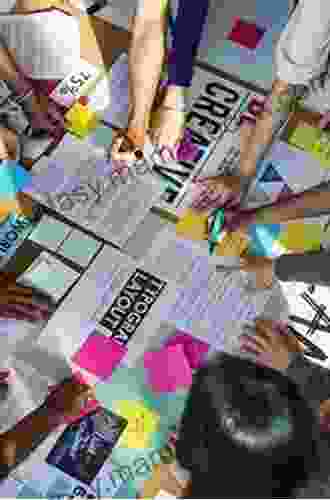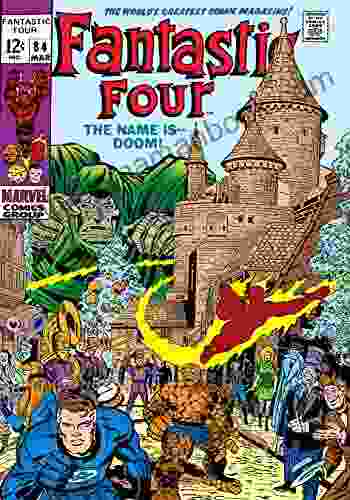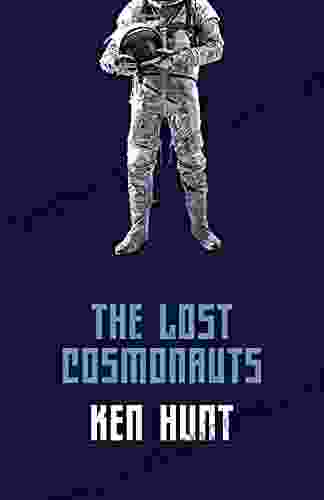Workshops: Designing and Facilitating Experiential Learning

Workshops are powerful tools for experiential learning, offering participants an opportunity to engage in hands-on, interactive activities and apply new knowledge and skills in a real-world context. When designed and facilitated effectively, workshops can create a highly engaging and impactful learning environment that fosters critical thinking, problem-solving, and collaboration.
This comprehensive guide will provide you with a step-by-step process for designing and facilitating effective workshops that result in meaningful outcomes for your participants. We will cover the key components of a successful workshop, including planning, delivery, and evaluation, and provide practical tips for creating a dynamic and engaging learning experience.
The first step in designing an effective workshop is to carefully plan the content and structure. Consider the following key elements:
4.2 out of 5
| Language | : | English |
| File size | : | 1522 KB |
| Text-to-Speech | : | Enabled |
| Screen Reader | : | Supported |
| Enhanced typesetting | : | Enabled |
| Word Wise | : | Enabled |
| Print length | : | 208 pages |
Clearly define the specific learning objectives that you want your participants to achieve by the end of the workshop. These objectives should be measurable and relevant to the participants' professional or personal development goals.
Identify the specific audience that you are targeting with your workshop. This will help you tailor the content and activities to meet their unique needs, interests, and learning styles.
Choose a workshop format that is appropriate for your learning objectives and target audience. Consider the following options:
- In-person workshops: Offer participants the opportunity for face-to-face interaction and hands-on activities.
- Virtual workshops: Conducted online, allowing participants to attend from anywhere with an internet connection.
- Hybrid workshops: Combine in-person and virtual elements to provide flexibility and reach a wider audience.
Determine the optimal duration for your workshop based on the complexity of the content and the needs of your audience. Consider offering shorter workshops (half-day or full-day) or longer workshops (multiple days or weeks) depending on the scope and depth of the material.
Plan a variety of interactive activities and exercises that will actively engage participants in the learning process. These activities should be designed to reinforce the learning objectives and provide opportunities for participants to apply their new knowledge and skills. Consider using a mix of individual, group, and whole-group activities to cater to different learning styles and encourage collaboration.
Once you have designed your workshop, it is important to facilitate it effectively to create a dynamic and engaging learning environment. Here are some key tips:
Begin the workshop by welcoming participants and creating a positive and supportive atmosphere. Encourage participants to introduce themselves and share their expectations for the workshop.
Establish clear ground rules for the workshop to ensure a respectful and productive learning environment. These rules may include guidelines for participation, time management, and respectful communication.
Incorporate active learning techniques throughout the workshop to keep participants engaged and actively involved in the learning process. This may include hands-on activities, simulations, role-playing exercises, and group discussions.
Facilitate meaningful discussions by encouraging participants to share their insights, experiences, and perspectives. Use open-ended questions and active listening skills to create a dialogue that deepens the learning process.
Provide constructive feedback to participants throughout the workshop to help them improve their learning and skills. Feedback should be specific, timely, and action-oriented.
Encourage collaboration among participants by creating opportunities for them to work together on activities, share ideas, and provide peer support.
After the workshop, it is important to evaluate its effectiveness to identify areas for improvement and demonstrate the value of your program. Consider the following methods:
Gather feedback from participants through surveys or focus groups to assess their satisfaction with the workshop and identify areas for improvement.
Measure the extent to which participants achieved the learning objectives of the workshop through pre- and post-workshop assessments, such as quizzes or knowledge tests.
Evaluate the extent to which participants are able to apply the skills and knowledge they learned in the workshop in their professional or personal lives. This may involve observing participants in action or interviewing them about their experiences.
For corporate workshops, evaluate the return on investment by measuring the impact of the workshop on employee performance, productivity, or other organizational outcomes.
Workshops are a powerful tool for experiential learning, providing participants with an opportunity to actively engage in the learning process and apply new knowledge and skills in a real-world context. By following the steps outlined in this guide, you can design and facilitate effective workshops that create a dynamic and impactful learning environment for your participants. Remember to carefully plan the content and structure of your workshop, facilitate it with enthusiasm and professionalism, and evaluate its effectiveness to ensure continuous improvement.
With well-designed and facilitated workshops, you can empower participants to achieve their learning goals, develop new skills, and make a meaningful impact in their professional and personal lives.
4.2 out of 5
| Language | : | English |
| File size | : | 1522 KB |
| Text-to-Speech | : | Enabled |
| Screen Reader | : | Supported |
| Enhanced typesetting | : | Enabled |
| Word Wise | : | Enabled |
| Print length | : | 208 pages |
Do you want to contribute by writing guest posts on this blog?
Please contact us and send us a resume of previous articles that you have written.
 Top Book
Top Book Novel
Novel Fiction
Fiction Nonfiction
Nonfiction Literature
Literature Paperback
Paperback Hardcover
Hardcover E-book
E-book Audiobook
Audiobook Bestseller
Bestseller Classic
Classic Mystery
Mystery Thriller
Thriller Romance
Romance Fantasy
Fantasy Science Fiction
Science Fiction Biography
Biography Memoir
Memoir Autobiography
Autobiography Poetry
Poetry Drama
Drama Historical Fiction
Historical Fiction Self-help
Self-help Young Adult
Young Adult Childrens Books
Childrens Books Graphic Novel
Graphic Novel Anthology
Anthology Series
Series Encyclopedia
Encyclopedia Reference
Reference Guidebook
Guidebook Textbook
Textbook Workbook
Workbook Journal
Journal Diary
Diary Manuscript
Manuscript Folio
Folio Pulp Fiction
Pulp Fiction Short Stories
Short Stories Fairy Tales
Fairy Tales Fables
Fables Mythology
Mythology Philosophy
Philosophy Religion
Religion Spirituality
Spirituality Essays
Essays Critique
Critique Commentary
Commentary Glossary
Glossary Bibliography
Bibliography Index
Index Table of Contents
Table of Contents Preface
Preface Introduction
Introduction Foreword
Foreword Afterword
Afterword Appendices
Appendices Annotations
Annotations Footnotes
Footnotes Epilogue
Epilogue Prologue
Prologue Grace Fleming
Grace Fleming Ryka Aoki
Ryka Aoki John Arthur Nichol
John Arthur Nichol Thich Nhat Hanh
Thich Nhat Hanh Lisa Ferrel
Lisa Ferrel Bernard A Weisberger
Bernard A Weisberger Grantly Dick Read
Grantly Dick Read Daphne Mcmenemy
Daphne Mcmenemy Katrina Cope
Katrina Cope Robyn Vandersys
Robyn Vandersys Vincent Keler
Vincent Keler Jesper Sehested
Jesper Sehested James E Dobson
James E Dobson Anton Chekhov
Anton Chekhov Ashley Kinkead
Ashley Kinkead Lisa Savy
Lisa Savy Margery Williams
Margery Williams Jeff Guinn
Jeff Guinn Joanna Wylde
Joanna Wylde Philip Caputo
Philip Caputo
Light bulbAdvertise smarter! Our strategic ad space ensures maximum exposure. Reserve your spot today!

 Raymond ParkerUnveiling the Intricacies of Professional Nursing: Concepts, Challenges, and...
Raymond ParkerUnveiling the Intricacies of Professional Nursing: Concepts, Challenges, and...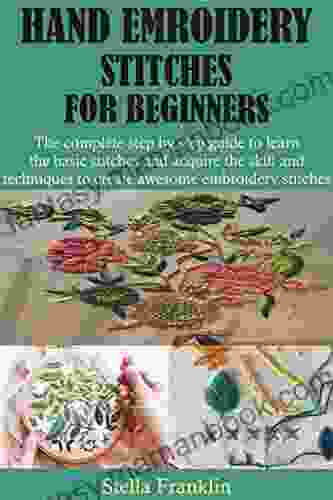
 Chase MorrisA Comprehensive Guide to Hand Embroidery Stitches for Beginners: Unlocking...
Chase MorrisA Comprehensive Guide to Hand Embroidery Stitches for Beginners: Unlocking...
 Roland HayesFive Unique Eating Plans to Shatter Your Weight Loss Plateau and Unleash Your...
Roland HayesFive Unique Eating Plans to Shatter Your Weight Loss Plateau and Unleash Your... Oscar BellFollow ·6.8k
Oscar BellFollow ·6.8k Dan HendersonFollow ·14.6k
Dan HendersonFollow ·14.6k Marcus BellFollow ·5.9k
Marcus BellFollow ·5.9k Lee SimmonsFollow ·10.9k
Lee SimmonsFollow ·10.9k Gilbert CoxFollow ·6.8k
Gilbert CoxFollow ·6.8k Matthew WardFollow ·8.2k
Matthew WardFollow ·8.2k Jay SimmonsFollow ·8k
Jay SimmonsFollow ·8k Orson Scott CardFollow ·8.7k
Orson Scott CardFollow ·8.7k

 Roland Hayes
Roland HayesFive Unique Eating Plans to Shatter Your Weight Loss...
Weight loss journeys can be a rollercoaster...

 Gustavo Cox
Gustavo CoxThe Small Habits Revolution: How Tiny Changes Can...
Are you ready to...

 Herman Mitchell
Herman MitchellVisit Alook Cool Place In Outer Space Let Explore The...
Welcome to the World Series...
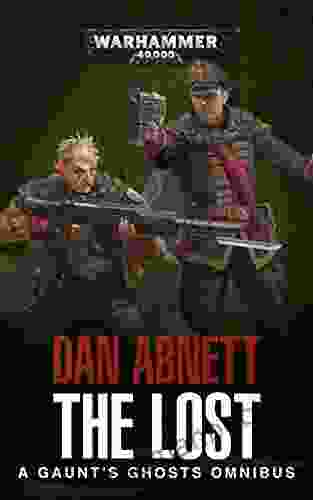
 Hassan Cox
Hassan CoxGaunt's Ghosts Omnibus: A Comprehensive Guide to the Epic...
Prepare to embark on an...
4.2 out of 5
| Language | : | English |
| File size | : | 1522 KB |
| Text-to-Speech | : | Enabled |
| Screen Reader | : | Supported |
| Enhanced typesetting | : | Enabled |
| Word Wise | : | Enabled |
| Print length | : | 208 pages |


